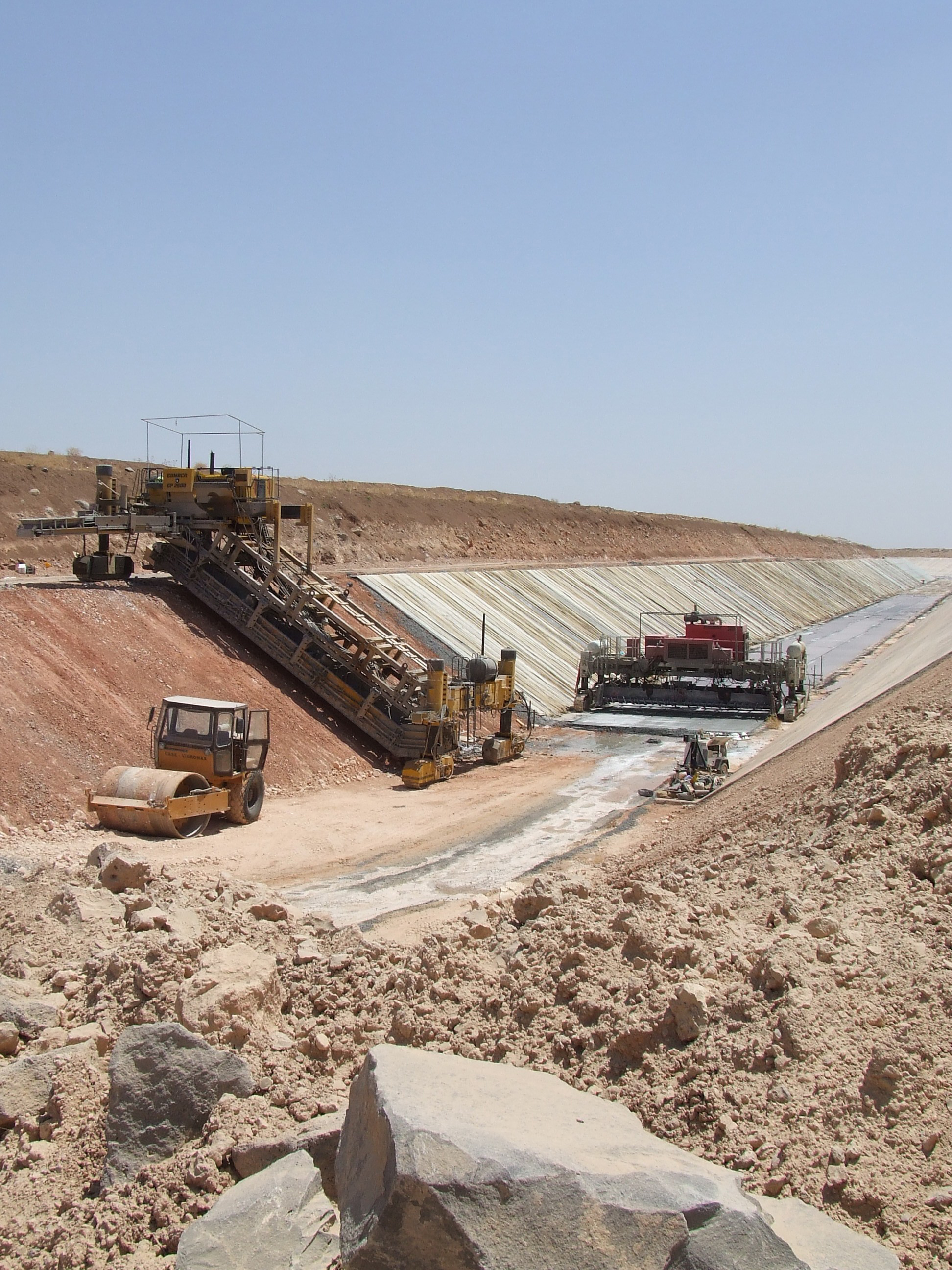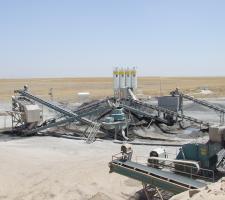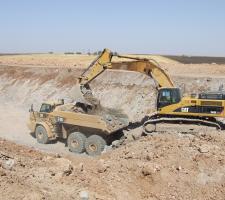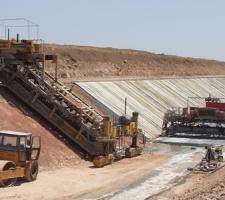
Construction of an irrigation canal in Turkey has given Eren Inşaat the opportunity to add aggregates production to its construction capabilities. Claire Symes visited the site to find out more
Over the last decade there has been a growing trend for construction companies to move into aggregate production in a bid to reduce costs and increase supply chain control. Turkey is no different and contractor
Eren Inşaat is in charge of the last section of the channel, which runs between Mardin and Ceylanpinar in Eastern Turkey, and started work on the project last June. This phase of the project is valued at US$100million but the whole scheme is estimated to be costing the Turkish government around US$300million.
Eren Inşaat is blasting and excavating rock from the channel before carrying out fine grading of the slopes which are overlaid with a geotextile followed by a 15cm thick layer of slipformed concrete. The project also includes construction of underpasses, overpasses, waddi crossings, siphons and sluice gates. Around 90% of the work is being done in-house by Eren Inşaat, but the company has subcontracted culvert and small bridge construction to Çaba and siphon work to Kappasimal.
"The project is unusual in terms of funding as it has been given a high priority - many projects in Turkey experience funding issues that delay work," explained Eren Inşaat chairman Yaşar Eren. "The government has the desire to build this project as quickly as possible and the funds for this scheme are readily available if you deliver the work." This need for production is partly what has led Eren Inşaat to invest in new equipment and technology for the work. "We have bought 102 new machines for this project," said Eren. "New machines help to bring down the overall costs because of the higher availability, lower operating costs and easier access to parts." The canal is 10m wide at the bottom with 12m slopes that will allow a 6m water depth in the main channel. It total the company will move 13million m3 of earth and use 2million m3 of fill to complete the profiling work.
The drilling for the blasting operation is being carried out by two
The route passes through both limestone - which only requires light blasting and can sometime be excavated by machine - and basalt which requires conventional drill and blast techniques. The profile also varies as in some areas to meet the geometry of the canal, Eren has to place fill and carry out less excavation, whereas in others the excavation is much greater than the canal profile.
High level power cables also cross the site several times so blasting in these areas has to be carefully designed.
The limestone is taken away from the site or used as backfill but the basalt is being crushed and screened in order to be reused as concrete aggregates for the project.
This is Eren Inşaat's first venture into aggregate production - the nature of the project pushed the company into this area but Eren has said that they are likely to look to undertake similar operations on future projects. "Previously we have used locally-won river aggregates for our work but a legislation change in January this year has banned that practice," he said. "We needed to excavate the basalt to create the canal so it made sense logistically to use it for aggregates.
"Carrying out the crushing and screening in-house has been a big experience with a lot of learning in the process, but other aggregates projects are inevitable now with the new legislation so it has been a positive step for the company." The company has a locally manufactured stationary crushing plant on the same site as its office complex but the company also has two mobile Metso Minerals Lokotrack crushing and screening trains that are being moved as the project progresses. Similarly, concrete plants are co-located with the stationary and mobile crushing and screening operations with a fleet of 10 mixer trucks to deliver the material to the construction sites.
The plants produce three sizes of material - 0-4mm, 4-15mm and 15-22mm with around 25% of the aggregates being produced by the stationary plant.
Concrete paving is being carried out using a
where the paving is being carried out at night due to the high daytime temperatures on site.
Productivity is essential as Eren Inşaat is aiming to have the excavation phase completed by July 2011. So far all of the siphons are built and 10km of the project is paved.
During the day, the focus is on excavation and grading of the slopes in preparation for paving. Eren is in the process of installing the largest fleet of Accugrade equipped machines in Turkey and this is helping to speed up work on site.
"Previously the grading process was holding up the paving work but this is no longer the case," said Eren. "The efficiency is about 400% greater with the GPS control - the men can work not only faster but also more accurately." Eren Inşaat trialled Accugrade on a Cat 320 excavator for four months before investing in more units - the company now has it fitted to a Cat D7 dozer and six other excavators working on the project. According to local Cat dealer
The company is currently grading 500m per day, while the slipforming is achieving 250m per day, although Eren is confident this is likely to increase with full commissioning of the Leica system.

















